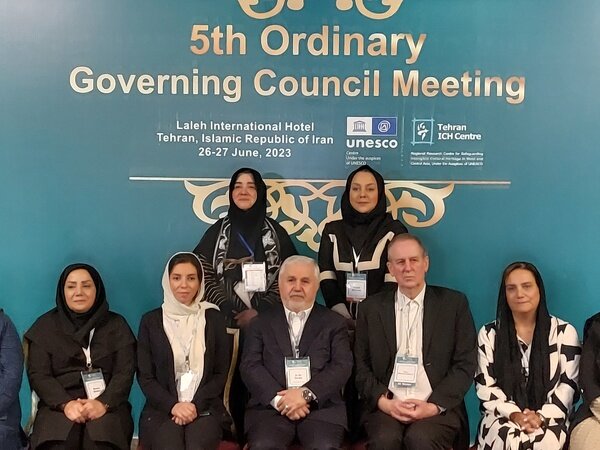Iran elected chair of UNESCO’s committee for safeguarding intangible cultural heritage

TEHRAN – Iran has been elected as chair of UNESCO’s Intergovernmental Committee for the Safeguarding of Intangible Cultural Heritage for the Asia-Pacific Group.
Cultural heritage experts selected the Islamic Republic during the region’s 5th Ordinary Governing Council Meeting, which took place in Tehran on June 26 and 27.
Addressing the event, Ali Darabi, Iran’s deputy tourism minister, said that his country firmly adheres to the UNESCO Convention for the Safeguarding of the Intangible Cultural Heritage.
“Iran is one of the most active countries in the world in the implementation of the Convention for the Safeguarding of the Intangible Cultural Heritage,”Darabi said.
He made the remarks at the 5th Ordinary Governing Council Meeting of the Regional Research Center for Safeguarding Intangible Cultural Heritage in West and Central Asia.
Tangible heritage is born from the intangible heritage of nations and has revealed the secrets of human-oriented coexistence throughout history… In fact, intangible cultural heritage is the soul of a nation’s culture, the official explained.
“Although intangible cultural heritage has been popularized in international literature over the last two decades, in West Asia and consequently in Islamic Iran, this concept has been of interest for centuries.” Darabi said Iran is proud of promoting symbols and manifestations of rich intangible cultural heritage.
So far, a variety of Iranian elements, from traditional skills in building and sailing Iranian Lenj boats in the Persian Gulf to Radif Iranian music and from pilgrimages to St. Thaddeus Monastery to the art of the miniature, have a place in UNESCO World Heritage Sites Found List of the Intangible Cultural Heritage of Humanity to protect the nation's cultural achievements.
According to the United Nations body on culture, intangible cultural heritage refers to traditions or living expressions inherited from our ancestors and passed on to our descendants, such as B. oral traditions, performing arts, social practices, rituals, celebratory events, knowledge and practices related to nature and the universe, or the knowledge and skills to produce traditional handicrafts.
The Convention for the Protection of the Intangible Cultural Heritage, adopted by the UNESCO General Conference on October 17, 2003, applies at both national and international levels.
AFM
Leave a Comment